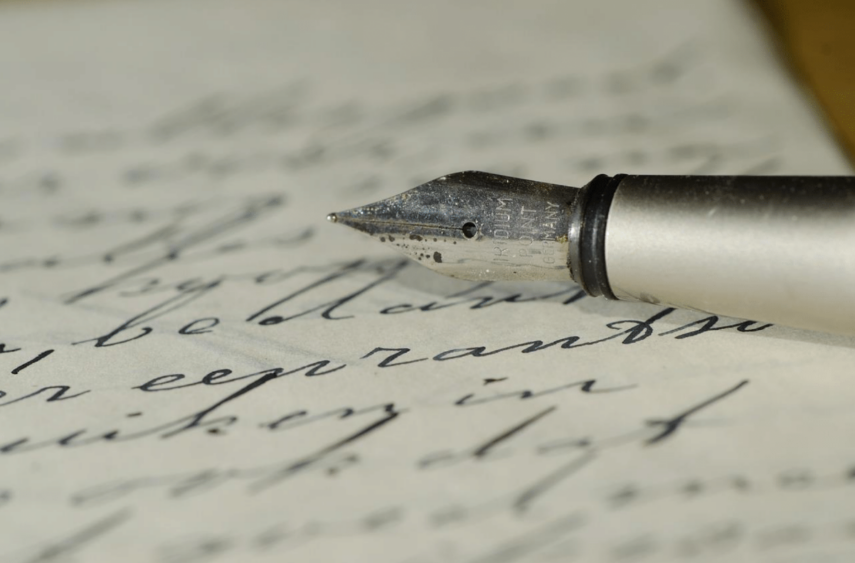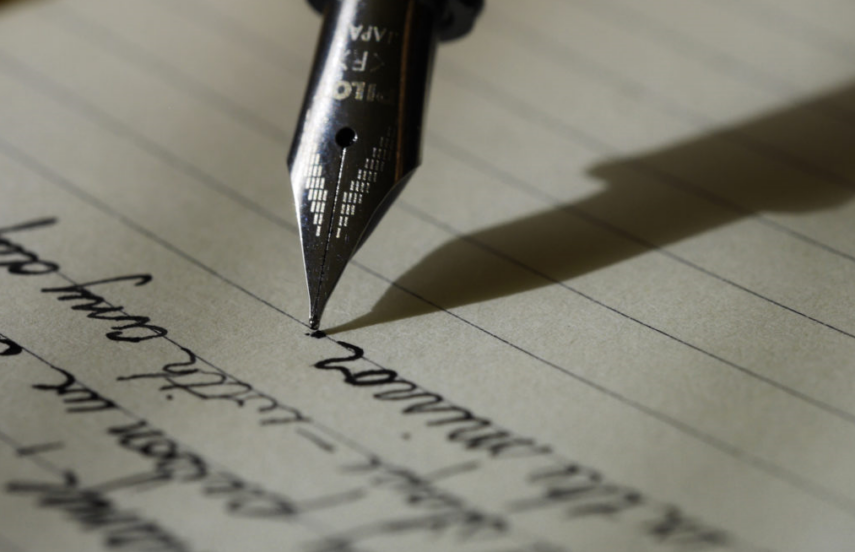The act of writing on paper may appear archaic and obsolete in the digital age, where technology has permeated every aspect of our lives. However, utilizing handwritten notes for journaling and introspection has a certain allure and usefulness. The act of physically writing down one’s ideas and experiences can have many advantages for personal growth and self-discovery, even while digital platforms enable ease and accessibility. This article examines the cognitive, emotional, and artistic benefits that handwritten notes provide for journaling and introspection.
Cognitive Benefits of Handwritten Notes

Enhancing Memory and Retention
- The act of writing stimulates different areas of the brain, improving memory and information retention.
- Research from Handwrytten suggests that handwritten notes are more effective for learning and comprehension compared to typing on a keyboard.
- Journaling by hand can help solidify memories, making it a valuable tool for self-reflection and personal growth.
Boosting Cognitive Function
- Writing by hand engages fine motor skills, coordination, and cognitive processes that stimulate brain activity.
- Handwritten notes promote focus and concentration, enhancing cognitive function.
- By engaging multiple senses, such as touch and proprioception, handwriting can aid in better understanding and processing of information.
Emotional Benefits of Handwritten Notes

Encouraging Emotional Expression
- Handwritten notes offer an intimate and personal space to express emotions freely.
- The act of physically writing down thoughts and feelings can be cathartic, helping individuals release pent-up emotions.
- Journaling by hand provides a safe outlet for self-expression, promoting emotional well-being and self-awareness.
Fostering Mindfulness and Self-Reflection
- The deliberate and mindful nature of handwriting encourages individuals to slow down and reflect on their experiences.
- The process of writing can bring clarity to thoughts and emotions, aiding in self-reflection and introspection.
- Handwritten journals serve as a tangible reminder of personal growth and emotional journeys, fostering a deeper understanding of oneself.
Creative Benefits of Handwritten Notes

Igniting Creativity and Inspiration
- The physical act of writing by hand can stimulate creativity and generate new ideas.
- The freedom of a blank page allows for doodling, sketching, and incorporating visual elements alongside written thoughts.
- Handwritten notes provide a creative outlet that transcends the constraints of digital platforms, fostering imagination and innovation.
Unleashing Personal Style and Authenticity
- Handwriting is unique to each individual, reflecting personal style and authenticity.
- The aesthetics of handwritten notes add a personal touch, making journaling a more engaging and personalized experience.
- Handwritten journals serve as cherished keepsakes, capturing not only the content but also the essence of the author’s personality.
Practical Tips for Effective Handwritten Journaling

Find the Right Tools
- Experiment with different pens, pencils, and notebooks to find what feels comfortable and enjoyable to write with.
- Consider factors like paper quality, ink flow, and size to enhance the writing experience.
Establish a Routine
- Set aside dedicated time for journaling to make it a consistent habit.
- Choose a quiet and peaceful environment that allows for uninterrupted reflection.
Write Freely and Authentically
- Embrace the imperfections of handwriting and allow thoughts to flow without judgment or self-editing.
- Use prompts or writing exercises to jumpstart creativity and explore different facets of your life.
Incorporate Visual Elements
- Add sketches, doodles, or relevant images to enhance self-expression and creativity.
- Experiment with different lettering styles or bullet journaling techniques to make your handwritten notes visually appealing.
Reflect and Review
- Periodically revisit your handwritten journals to reflect on past experiences and insights.
- Take note of recurring patterns, personal growth, and areas for improvement.
Embrace Flexibility
- Don’t feel constrained by traditional journaling formats. Adapt your handwritten notes to suit your needs and preferences.
- Explore different journaling techniques such as gratitude journaling, dream journaling, or reflective prompts.
Integrating Digital and Handwritten Journaling

Utilize Digital Tools for Organization
- Use digital platforms to supplement and organize your handwritten notes.
- Scanning or photographing your handwritten pages can create backups and facilitate easy searchability.
Combine the Benefits of Analog and Digital
- Embrace the advantages of both worlds by combining handwritten and digital journaling.
- Use digital platforms for quick notes and on-the-go journaling, while reserving dedicated time for handwritten reflection.
Digitalize Handwritten Notes
- Explore the use of digital tablets or smart pens to digitally capture your handwritten notes.
- This allows for easy editing, sharing, and organizing while still preserving the personal touch of your handwriting.
Personal Experience and Show the Realism
Handwritten notes for journaling and self-reflection offer a unique and personal experience that cannot be replicated by digital platforms. While technology provides convenience and accessibility, the act of physically writing down one’s thoughts and experiences on paper holds numerous advantages.
Self-Growth and Enhancing Cognitive Skills

One of the cognitive benefits of handwritten notes is their ability to enhance memory and retention. When we write by hand, we engage different areas of the brain compared to typing on a keyboard. This engagement stimulates memory and information retention, making handwritten notes more effective for learning and comprehension. Journaling by hand can solidify memories and experiences, allowing individuals to reflect on them later, which is crucial for personal growth and self-reflection.
Furthermore, handwriting boosts cognitive function. The act of writing by hand involves fine motor skills, coordination, and cognitive processes that stimulate brain activity. As a result, it promotes focus, concentration, and cognitive flexibility. Handwritten notes engage multiple senses, such as touch and proprioception, providing a holistic experience that aids in better understanding and processing of information.
Expression of Closeness
On an emotional level, handwritten notes offer a safe and intimate space for emotional expression. The physical act of writing down thoughts and feelings can be cathartic, allowing individuals to release pent-up emotions and gain a sense of relief. Journaling by hand provides a private outlet for self-expression, promoting emotional well-being and self-awareness.
Conclusion

The technique of using handwritten notes for journaling and self-reflection is still strong and important in today’s technologically advanced society. By strengthening memory and cognitive function, handwriting has cognitive advantages. By facilitating emotional expression and promoting mindfulness and self-reflection, it also has positive emotional effects. Additionally, handwritten notes spark inspiration and individual flair by liberating creativity and honesty. People can combine the advantages of analogue and digital ways by adhering to useful advice and using digital tools when required. So embrace the power of pen and paper and start keeping a handwritten notebook as you set out on a path of self-discovery and personal development.
Related Posts:
- Fortnite 9.21 PATCH NOTES : What's New Coming in…
- What Fortnite 9.30 patch notes bring for you?
- Tesla's Approach to Self-Driving Cars Could Cause…
- Fortnite Patch Notes Today 9.30 Released - Update Details
- GTA 5 Online Weekly Update: Complete Patch Notes
- Can you Save Money by Using Cable TV During Quarantine Time?







